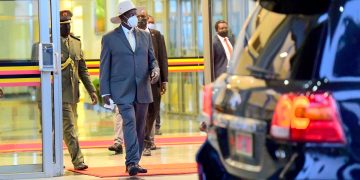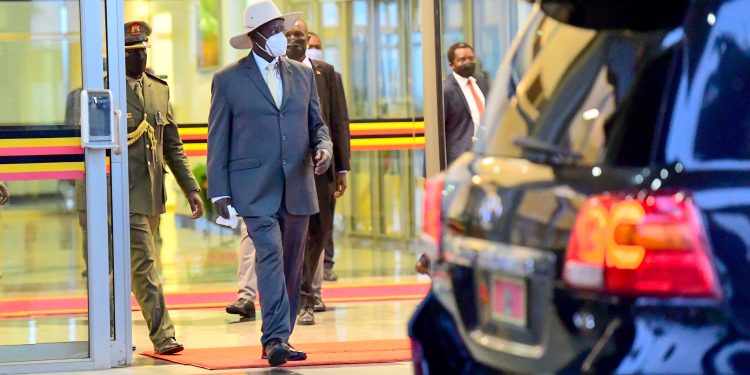President Yoweri Museveni has reiterated Uganda’s commitment to maintaining regional peace and stability as well as continental peace.
He was this week speaking to Voice of America’s Peter Clottey in a one-on-one interview on the role Uganda is playing to ensuring peace and stability particularly in the East African corridor.
“Our role in Africa, it can only be two elements; element number one, to tell the Africans the medicine we used, because there is this medicine which seems to have helped us, so when I meet, whenever I meet, I say please, the antibiotic I used and the antibiotic has four elements, patriotism, pan Africanism, socioeconomic transformation and democracy,” Museveni said.
“And secondly, where our help is required we help him and we’re able to help. Our soldiers to where they will not say, why are we taking me to Somalia? Because he knows. He knows that for the future of Africa, Somalia is, needs Uganda and Uganda needs Somalia.”
On democracy and the rule of law in Uganda, Museveni said he is willing to meet his critics and opponents and dialogue.
“We are meeting…we have a group called ÁLPOT Interparty Advisory Committee is like, OK, we have a few who don’t come, who don’t want to come that don’t attend otherwise, we have been having this for the last, actually ten years now, we discuss everything about the family. We said the government must fund them following a certain formula according to the numerical strength of the parties in parliament.”
He also spoke about claims by opposition political parties regarding the narrowing political space, security agencies disrupting their meeting their constituents or supporters, etc.
Museveni explained that the friction was over the corona time and “actually, they are the ones who caused the second wave, the second wave of corona should be opposition worth”.
“That’s how we get into some friction. Otherwise, there are no… radios…Uganda has got one of the freest media in the world. Check how many radio stations are there. They say whatever they want to say. If they break the law they are accused in court and they fight it out.”
Clottey reminded the president about his critic (author Kakwenza Rukirabasaija) who made claims of torture by the military and has the scars to prove it.
In response, the president admitted that some of the people have been tortured but has not personally confirmed Kakwenza’s case.
“Well, it’s true that some of the people were tortured. I have got some…I have not confirmed about that one but I have confirmed some other cases, and I took it up with the…because you see, the…part of the problem of Africa is capacity building.”
He said they are building armies and security forces which sometimes come with traditional ideas from the village, or, they get imported ideas from the former colonialists.
“Like for instance the police force which was here during colonial times, they were using those methods. The answer for those is…apart from… the documents are there, the laws are there. But the sensitization to tell them that first of all, torture is not necessary.”
Peter Clottey: Your opponents say Mr. President has been in power since 1986. What at all does he want to achieve that he hasn’t achieved? What does he want to do? Children born since 1986 have known only one leader and one leader only.President Yoweri Museveni. They said it is about time Mr. President goes to his farm, takes care of his grandchildren, and then leave it to the young generation to continue what he has build. How do you respond to them, Mr. President?
President Yoweri Museveni: So those people are Democrats? I thought they were Democrats because that’s a decision that is taken by the electorate, the electorate. First of all the problem we have is that all those actors have no mission. They just want power. For us, it is not the question of who or who’s to be in power. Our understanding is the what? What is to be done? If you have done something on patriotism, good. That’s why we’ve got some good results. That’s what you get is not a failed state. That’s why we don’t have the UN here to guard us to defend us, or France to bring troops here to defend us as if as if there are no people here.









